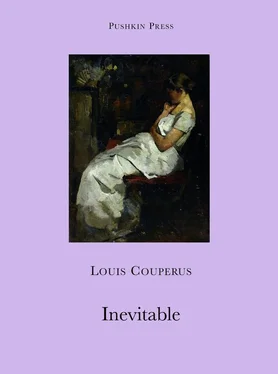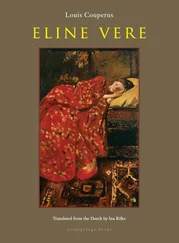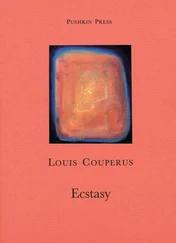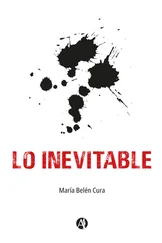Emotions ran high and commotions were the order of the day. Christmas approached and people flocked to the cribs, constructed by painters in Palazzo Borghese — a panorama of Jerusalem; and the shepherds, the angels, the Three Kings, and Mary with the Christ child in the stall with ox and ass. In Ara Coeli they listened to the sermons of little girls and boys, who climbed in turn onto a platform and acted out the story of the birth: some shyly reciting a verse, prompted by an anxious mother; others, mainly girls, declaiming with Italian tragic pathos and rolling eyes like little actresses and ending with a religious moral. The common people and countless tourists listened to the sermons: a pleasant atmosphere prevailed in the church, where the shrill young children’s voices orated; there was loud laughter at gestures and effects; and the clergy walking around were wreathed in unctuous smiles, so sweet and touching was the scene. And in the chapel of the Santo Bambino the miraculous wooden idol was radiant with gold and jewels and the dense throng milled about in front of it.
All the guests at Belloni bought holly branches on Piazza de Spagna and decorated their rooms, and some, for example Baroness Von Rothkirch, set up a private Christmas tree in their own room. The evening before the great festival everyone went to admire these private trees; they walked in and out of rooms, and all the guests, however much they sometimes squabbled and intrigued against each other, wore benevolent seasonal smiles and received everyone. There was general agreement that the baroness had gone to great trouble and that her tree was magnificent, and that her bedroom had been nicely transformed into a boudoir; the beds draped to become sofas, the washbasins concealed, and the trees radiant with light and gold. And the baroness, in a rather sentimental mood this evening, threw open her doors to everyone, and even offered the two aesthetic ladies sweets, when the marchesa also appeared smiling at her door, her bosom wreathed in sky-blue satin, and wearing even larger pendant crystal earrings than usual. The room was full; there were the Van der Staals, Cornélie, Rudyard, Urania Hope, other guests walking in and out, with the result that one could not budge, and was crammed together on the draped beds of mother and daughter. The marchesa brought in at her side an unknown young person: small, slim, with a pale olive complexion, with vivaciously sparkling dark eyes, in tails, and with the nonchalant good manners of an indifferent and weary man of the world; distinguished, yet supercilious. And she proudly approached the baroness, who was constantly and charmingly dabbing her moist eyes and arrogantly introduced him:
“My nephew, duca di San Stefano, principe di Forte-Braccio …”
The widely known Italian name was deliberately trumpeted loudly into the crowded, far from spacious room and all eyes focused on the young man, who bowed to the baroness and looked vaguely and ironically round the room. The marchesa ’s nephew had not yet been seen in the hotel that winter, but everyone knew that the young Duke of San Stefano, Prince of Forte-Braccio, was a nephew of the marchesa , and one of the advertisements for her pensione . And while the prince spoke to the baroness and her daughter, Urania Hope stared at him as if he were a wondrous being from another world. She had grasped Cornélie’s arm as if for support, as if she were about to faint at the sight of so much Italian aristocratic grandeur. She found him very handsome, very distinguished: small, and slim and pale, with eyes like carbuncles, with his languid distinction, and the white orchid in his buttonhole. And she would have loved to ask the marchesa to introduce her to her chic nephew, but did not dare, thinking of her father’s stocking factory in Chicago.
The following evening was the festival of the tree and the ball. It was known that the marchesa ’s nephew would be coming that evening, and emotions ran high all day long. The prince came after the presents had been taken off the tree and distributed, and by the side of his aunt, the marchesa , he made a kind of triumphal entry into the room where the ball had not yet begun but where guests were already seated here and there, with everyone’s eyes glued to his ducal and princely presence.
Cornélie was walking with Duco van der Staal, who to the great amazement of his mother and sisters had dug out his coat and tails and appeared in the spacious hall, and both saw the triumphal procession of ‘la Belloni’ and her nephew and laughed at the star-struck looks of the English and American ladies. They — Cornélie and Duco — sat down in the hall on two chairs in front of a group of palms masking one of the doors of the room, while the ball began inside. They were talking about the statues in the Vatican that they had seen together a few days earlier, when close to their ears they heard a voice that they recognised as the marchesa ’s imperious boom trying vainly to muffle itself in whispers. They looked round in surprise and noticed the hidden door clearly ajar, and through the chink glimpsed part of the slim hand of the prince and a section of the blue bosom of Belloni, both of them seated on a sofa in the room. They were therefore back to back, divided by the fractionally opened door. For amusement they listened to the marchesa ’s Italian; the prince’s answers were lisped so faintly that they could not follow. And they heard only a few words and phrases. They listened despite themselves when they heard Rudyard’s name mentioned, clearly articulated by the marchesa .
“And who else?” asked the prince softly.
“An English miss,” said the marchesa . “Miss Taylor, she’s sitting over there, in that corner alone … A simple soul … Then the baroness and her daughter … The Dutch woman; a divorcee … And the beautiful American girl.”
“And what about those two nice Dutch girls?” asked the prince.
The music blared more loudly and Cornélie could not hear a thing.
“And the divorced Dutch woman?” the prince continued.
“No money,” answered the marchesa abruptly.
“And the young baroness?”
“No money,” repeated Belloni.
“So no one but that stocking seller?” asked the prince wearily.
‘La Belloni’ became angry, but Cornélie and Duco could not follow the short sentences she rattled off; the music was still booming out.
“She’s beautiful,” they heard the marchesa say. “She’s worth a fortune. She could be in a top hotel, but she is here, because she was recommended to me as a young girl travelling alone and because it’s cosier here. She has the large drawing-room all to herself and pays fifty lire a day for her two rooms. It makes no difference to her. She pays three times as much for her wood as the others and I even charge her for the wine.”
“She sells stockings,” murmured the prince reluctantly.
“Rubbish,” said the marchesa . “Remember that there’s no one else at the moment. Last winter we had rich English people from the nobility, with a daughter, but she was too tall for you. You always find something. You mustn’t be so fussy.”
“I like the look of those two little Dutch darlings.”
“They’ve got no money. You’re always attracted to the wrong thing.” “How much has papa promised you, if you …”
The music swelled.
“… Wouldn’t matter … If Rudyard talks to her … Taylor is easy… Miss Hope …”
“I don’t need that many stockings …”
“… very witty. If you don’t want …”
“… no …”
“… then I’ll withdraw … Rudyard will say … How much?”
“Sixty or seventy thousand: I don’t know exactly.”
Читать дальше












